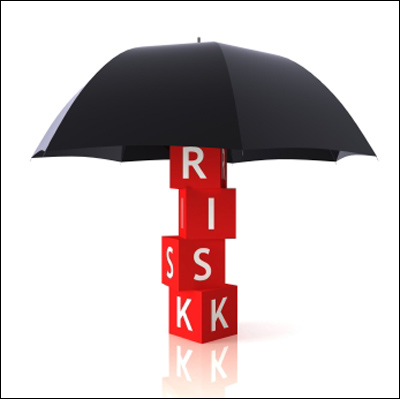Insurance is a fact of life for all businesses and it's important to ensure the right amount of coverage. You want to make sure that if there is a unexpected and costly incident within your business that it doesn't ruin your business financially. Despite its necessity there are a range of options available to hospitality businesses that want to reduce the cost of their business insurance premiums.
The cost of premiums reflect the probability that an insurance company will need to pay out a claim. It stands to reason then that the riskier the business, the higher the premium. Therefore any cost savings that you are going to make on your business insurance will come from showing insurance companies that you present less risk and a reduced probability that they will need pay out a claim. What follows is a number of suggestions to lower your business risk and reduce the cost of your business insurance premiums.
The cost of premiums reflect the probability that an insurance company will need to pay out a claim. It stands to reason then that the riskier the business, the higher the premium. Therefore any cost savings that you are going to make on your business insurance will come from showing insurance companies that you present less risk and a reduced probability that they will need pay out a claim. What follows is a number of suggestions to lower your business risk and reduce the cost of your business insurance premiums.
1. Install Risk Reducing Equipment.
One way to lower the cost of your premium is to check what discounts are on offer for installing items that lower your insurance risk. These items could include:
- A burglar alarm
- A fire alarm
- Sprinklers
2. Prevent Injuries
Take steps to reduce the risk of incidents like slips and falls. If you can demonstrate the steps you have taken and provide evidence through things like documented policies and a log book, that injuries have been reduced or eliminated because of the steps you have taken, then you are more likely to receive a reduction in your insurance costs.
One simple method of doing this is to ensure that regular maintenance work is carried out on your premises. Ensure your restaurant or cafe has eliminated tripping hazards like loose rugs and wires as well as cracked pavement if you have an outdoor dining area or car park. Another area to consider is lighting. Ensuring corridors, stairs and outdoor areas are well-lit to reduce the likelihood that you will need to make a claim.
One simple method of doing this is to ensure that regular maintenance work is carried out on your premises. Ensure your restaurant or cafe has eliminated tripping hazards like loose rugs and wires as well as cracked pavement if you have an outdoor dining area or car park. Another area to consider is lighting. Ensuring corridors, stairs and outdoor areas are well-lit to reduce the likelihood that you will need to make a claim.
3. Bundle Your Policies
If you have a number of different policies across a number of different insurance providers then you might qualify for a discount if you bundle your policies together with one company. Just as a phone provider offers discounts for internet and phones the same is true with insurance.
4. Increase Your Excess
There is an argument to be made for increasing your excess to reduce your business insurance premium. By doing this you want to ensure that you can comfortably meet any excess payment in the event you do need to make a claim. However if you have taken other steps to reduce your risk and you reason that you are now less likely to make a claim then this strategy can make sense.
5. Analyse Your Policies
In most cases hospitality business will have more than one insurance policy. This leaves open the possibility that there is duplication in what is covered or even irrelevant clauses that aren't needed for a cafe or restaurant business. Carefully examine your policies to see if this is the case. This is especially true if the scope of your business has changed, especially when it comes to operations. It may be that you are covered for things that are no longer apply to your business.
6. Update Your Policy Details
As well as checking your existing policy when the operations of your business change, the same should be done when key employees change roles or leave your business. Examine your existing policies to ensure that those named on your insurance are still in the same role or with the business. Significant savings can be made when a higher risk employee is taken off an insurance policy and an employee with a lower risk is added. Hospitality businesses who have delivery vehicles should be particularly mindful of this avenue to cut the cost of insurance premiums.
7. Seek The Advice Of An Insurance Broker
There are a vast range of insurance providers and different insurance products available to hospitality businesses. To wade through this often complex maze it is a good idea to seek expert advice from someone who knows the industry well. An insurance broker will be able to give you advice on a range of different products, prices and policy coverage. They can identify what exactly you're covered for, where there might be gaps or where there is duplication.
Many hospitality business owners go out and find insurance on their own thinking that will save them money. However they lack the expertise needed when shopping around for the most cost effective insurance option. This can lead to a restaurant or cafe with the wrong type of product for their needs. Insurance brokers are usually free so it makes sense to use their advice.
Many hospitality business owners go out and find insurance on their own thinking that will save them money. However they lack the expertise needed when shopping around for the most cost effective insurance option. This can lead to a restaurant or cafe with the wrong type of product for their needs. Insurance brokers are usually free so it makes sense to use their advice.
Bonus Tip: Join A Trade Organisation
Hospitality business owners looking to save on business insurance premiums should look to trade organisations or professional associations that they are members of for a better deal. If your not a member then it's worth investigating wether discounts on business insurance is a benefit of joining. Many of these organisations have struck deals with insurance companies and members can make use of significant discounts on top of the networking opportunities these associations present. A win-win outcome!
We'd love to hear your thoughts. Are you a hospitality business owner who has a tip they can share on insurance costs?


 RSS Feed
RSS Feed